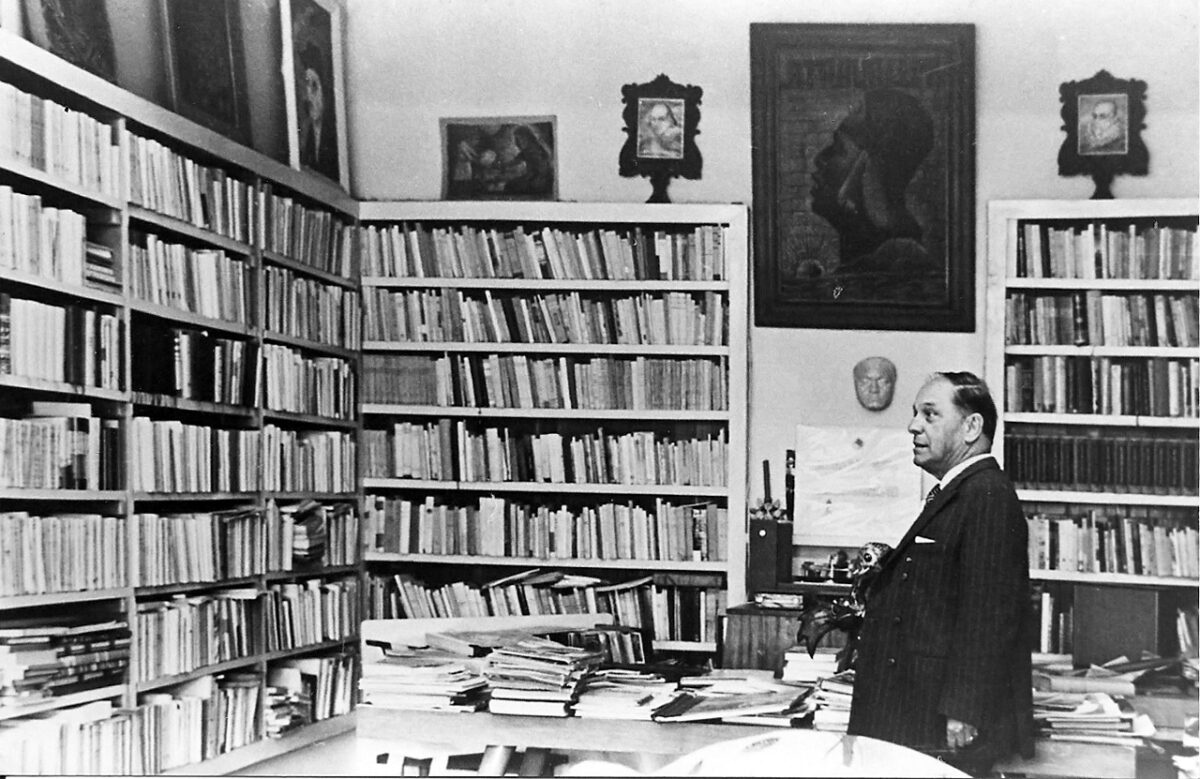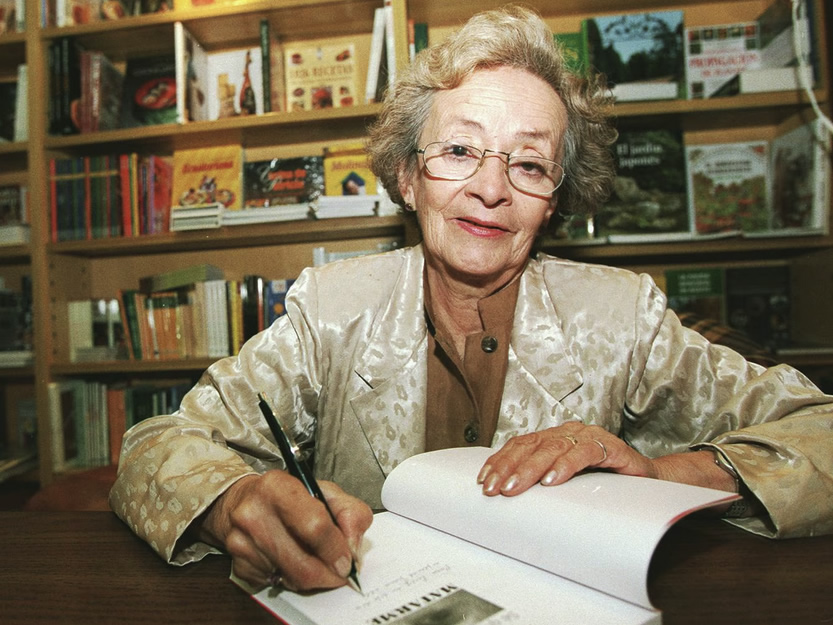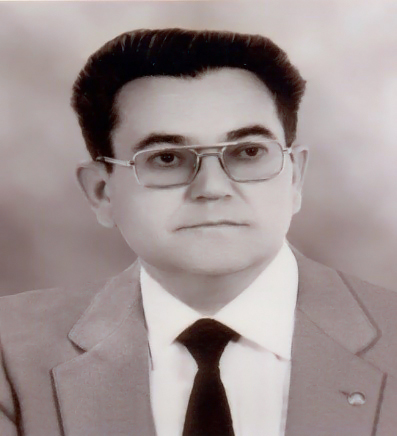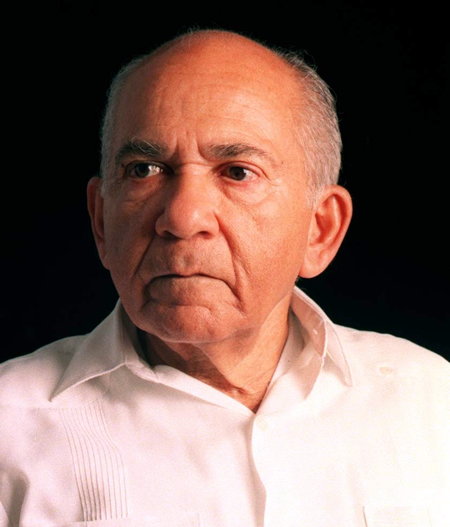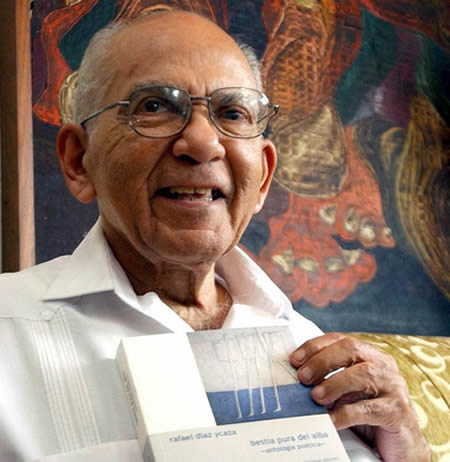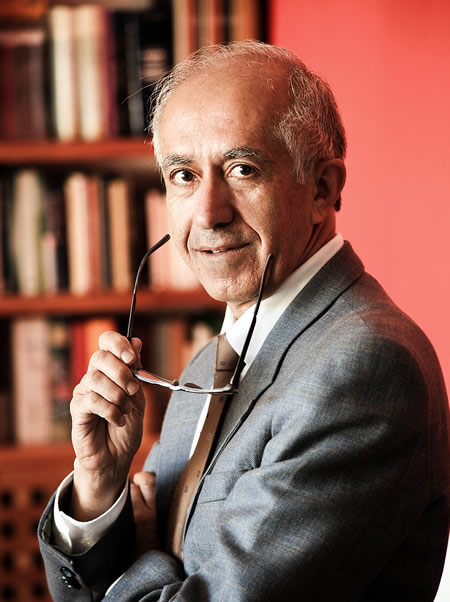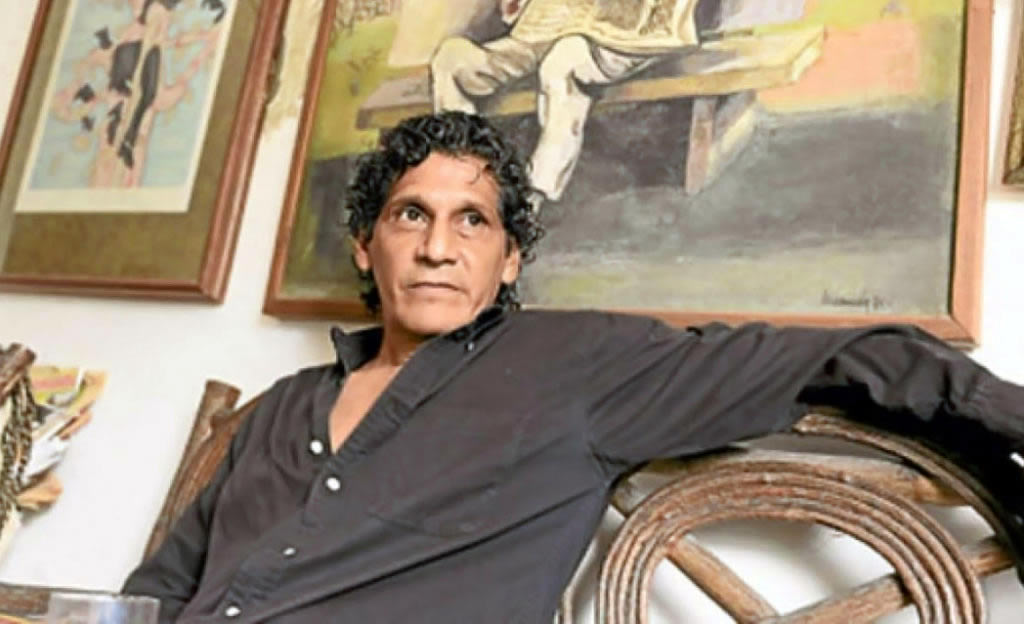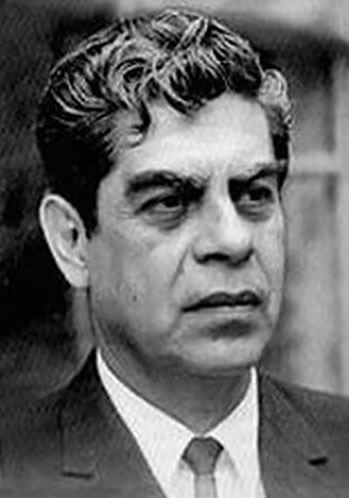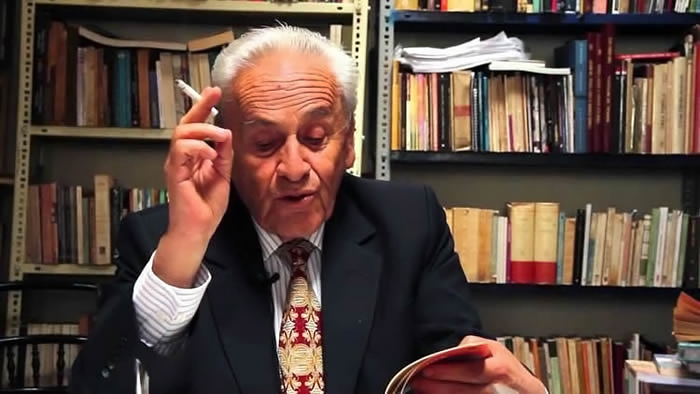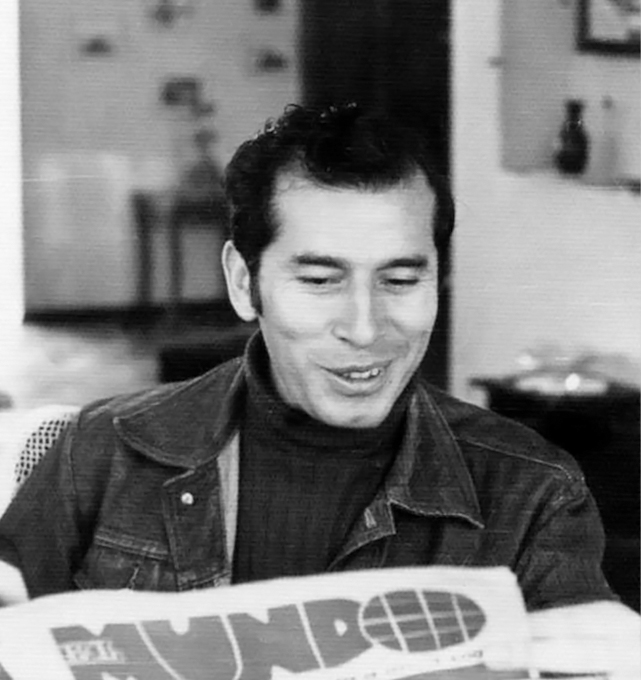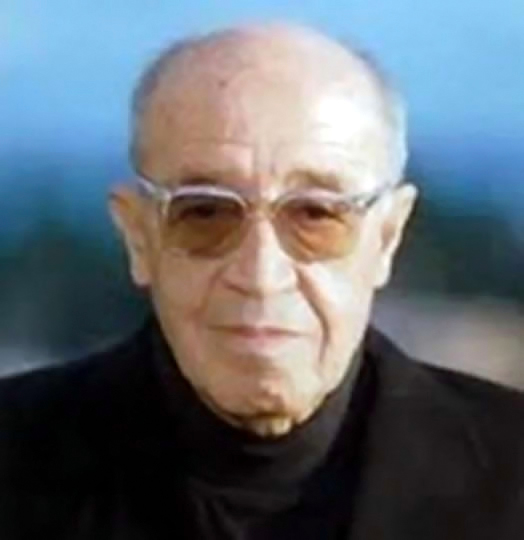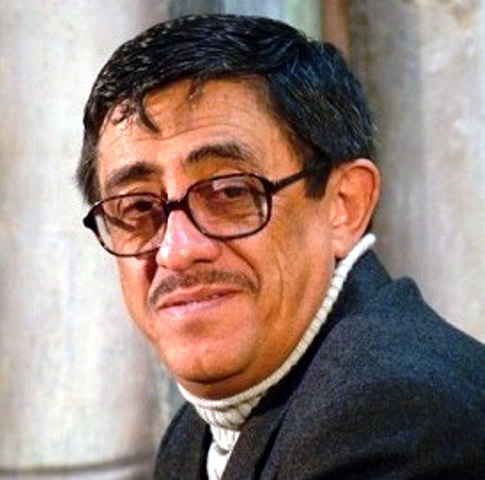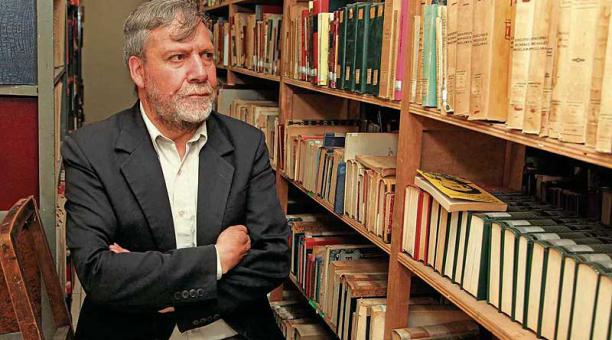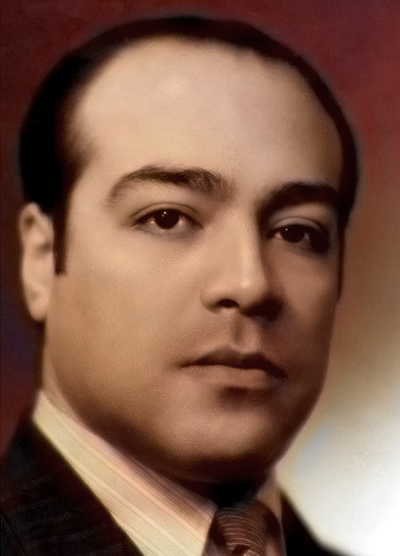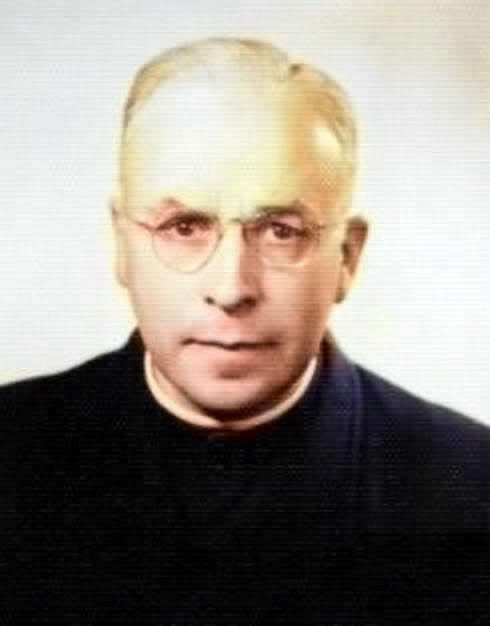Benjamín Carrión Mora (Loja, April 20, 1897 – Quito, March 8, 1979) was one of the great Latin American intellectuals of the 20th century. He was a lawyer, writer, novelist, poet, essayist, biographer, literary critic, legislator, diplomat, educator and cultural promoter. His most notable literary work is Atahualpa (1934), a biography written in story form about the last Inca emperor, which has been translated into English and French. In 1944 Carrión founded the House of Ecuadorian Culture, which preserves and promotes many aspects of Ecuador’s culture, including music, dance, art, literature, theater and film. Considered Carrión’s greatest achievement and legacy, this organization maintains several museums, libraries and performance venues throughout Ecuador, as well as a printing press which has been instrumental in publishing many noteworthy Ecuadorian authors.
Continue reading “Benjamín Carrión”Category: 20th Century Writers
Alicia Yánez Cossío
Alicia Yánez Cossío (Quito, September 10, 1928) is an Ecuadorian novelist, poet, short story writer, and journalist. She is considered one of the 2oth Century’s most important literary figures of Ecuador and Latin America. Since 1991 she has been a member of the Ecuadorian Academy of Language. In 1996, with her novel El cristo feo (1995), Yánez became the first Ecuadorian to win the Sor Juana Inés de la Cruz Prize (Guadalajara, Mexico), one of the most prestigious awards for female authors in the Spanish speaking world. In 2008 she received Ecuador’s highest literary award, the Eugenio Espejo Award, for her lifetime of work.
Continue reading “Alicia Yánez Cossío”Juan Manuel Rodríguez López
Juan Manuel Rodríguez López is a novelist, short story writer, literary critic, columnist and professor. Born in Bilbao, Spain in 1945, Rodríguez is a naturalized Ecuadorian citizen and has lived in Quito most of his adult life. Rodríguez’ award-winning fiction includes the novels El poder de los vencidos (2003), El pulso de la nada (1996), and El Espantapájaros (1990 & 1995). In 1990, his short story collection Fricciones won the prestigious Aurelio Espinosa Pólit Prize.
Continue reading “Juan Manuel Rodríguez López”Ecuadorian poet and novelist Rafael Díaz Ycaza reading from his poetry and prose
Ecuadorian poet and novelist Rafael Díaz Ycaza reading from his poetry and prose. Archive of Hispanic Literature on Tape (Library of Congress, Control Number 93842308), Recorded Mar. 27, 1977, in the Library of Congress Recording Laboratory, Studio B, Washington, D.C. Recorded for the Archive of Hispanic Literature on Tape. Production level cataloging. Also available in digital form on the Library of Congress Web site.
Go to RecordingRafael Díaz Ycaza
Rafael Díaz Ycaza (Guayaquil, October 28, 1925 – August 28, 2013) was a poet, novelist, short story writer and columnist. His notable works include poetry collections such as “Statues at Sea” (1946), “Botella al Mar” (1964), and “Zona Prohibida” (1972), each resonating with his lyrical style and profound imagery. Among his novels are “Los Rostros del Miedo” (1962) and “Los Prisioneros de la Noche” (1967). Beyond his literary achievements, Díaz Ycaza was honored with various awards and recognitions, including the Aurelio Espinosa Pólit Prize (1985)” and the “José de la Cuadra National Short Story Prize (1967). In 2011, Ecuador’s President Rafael Correa awarded Díaz with the the nation’s highest literary distinction, the Eugenio Espejo National Prize, for his lifetime of literary work.
Continue reading “Rafael Díaz Ycaza”“His book [Zona prohibida] was like a bible for the youth of my generation, especially for its social poetry.”
Sonia Manzano (Poet) – quoted in “Rafael Díaz Ycaza, el hombre que dedica su vida a las letras,” El UNIVERSO, Sept 2, 2011.
Iván Carvajal
Iván Carvajal Aguirre is a poet, writer and professor. He was born in 1948 in San Gabriel, Ecuador. In 1984 his work entitled Parajes earned the Aurelio Espinosa Pólit Prize. In 2013 he won the Premio a las Libertades Juan Montalvo. He was part of the Tzantzismo literary movement of the 1960s Ecuador. He lives in Quito and is a Professor at the Pontifical Catholic University of Ecuador.
Continue reading “Iván Carvajal”Jorge Martillo
Jorge Martillo Monserrate is an award-winning poet and has been a columnist for various newspapers. He was born on May 2, 1957 in Guayaquil, Ecuador. He has published the poetry books: Aviso a los navegantes (1987); Fragmentarium (1991); Confesiorarium (1996) and Vida póstuma (1997). He was awarded the Aurelio Espinosa Pólit Prize (1991).
Continue reading “Jorge Martillo”Enrique Gil Gilbert
Enrique Gil Gilbert (Guayaquil, July 8, 1912 – Ibidem, February, 21, 1973) was an Ecuadorian novelist, short story writer, nonfiction writer, politician and teacher. He was the youngest member of the “Guayaquil Group,” a group of realist writers of the 1930s Ecuador. At only eighteen years of age he co-wrote “Los que se van, cuentos del cholo y del motuvio“ (1930) with Demetrio Aguilera Malta and Joaquín Gallegos Lara – a book of short stories which marked the beginning of literary realism in Ecuador. His most famous work is his only novel, “Nuetro pan” (1942), which was translated into English in 1943 as “Our Daily Bread.” His other noteworthy story collections include: “Yunga,” “Relatos de Emanuel” [Tales of Emanuel], and “La cabeza de un niño en un tacho de basura” [The Head of a Child in a Trash Can].
Continue reading “Enrique Gil Gilbert”Julio Pazos Barrera
Julio Pazos Barrera is a poet, writer, teacher, and cook. He was born in Baños, Ecuador on August 19, 1944. In 1979, Pazos’ poetry book La ciudad de las visiones was awarded the Aurelio Espinosa Pólit Prize. In 1982, his book Levantamiento del país con textos libres was awarded Latin America’s most prestigious literary award, the Casa de las Américas Prize (Havana, Cuba). Pazos is the editor-in-chief of the magazine Letras del Ecuador published by the Ecuadorian House of Culture. He is a member of the Ecuadorian Academy of Language. In 2010, Pazos was awarded Ecuador’s top literary prize Premio Eugenio Espejo by President Rafael Correa.
Continue reading “Julio Pazos Barrera”Carlos Benavides Vega
Carlos Benavides Vega, pseudonym: Álvaro San Félix (Guayaquil, March 9, 1931 – Quito, September 29, 1999) was an Ecuadorian poet, actor and playwright. He was a member of Club 7, a Guayaquil-based poets’ group founded in the 1950s. In 1954, Benavides was among one of five members who together published a poetry collection titled “Club 7.” He was a pioneer of historical drama, authoring the plays, “La herida de Dios” (1978; winner of the Aurelio Espinosa Pólit Prize) about Gabriel Garcia Moreno, “Espejo, elias Chushig” (1979), and “Caudillos en llamas” (1980). He also co-wrote “Una loca Estrella,” a historical play about Manuelita Sáenz, with Pedro Saad Herrería.
Continue reading “Carlos Benavides Vega”Marco Vinicio Rueda
Father Marco Vinicio Rueda Gomezjurado was a Jesuit priest, philosopher, anthropologist, writer, educator. He was born in Quito, Ecuador on August 12, 1914 and died in the same city on March 13, 2005. Rueda was an exponent of Zen in Ecuador. Rueda’s most notable books are concerned with philosophy, anthropology and Zen.
Continue reading “Marco Vinicio Rueda”Jorge Dávila Vázquez
Jorge Dávila Vázquez is a writer, professor and film critic. Dávila Vázquez was born on February 14, 1947 in Cuenca, Ecuador. Dávila Vázquez has written novels, plays, short stories, poetry and nonfiction. He is a two-time recipient of the prestigious Aurelio Espinosa Pólit Prize, for his experimental novel María Joaquina en la vida y en la muerte (1976), and for his short story collection Este mundo es el camino (1980). His short story book El libro de los sueños (2001) won the Joaquín Gallegos Lara Prize. In 2016, Dávila was awarded Ecuador’s top literary prize, the Eugenio Espejo Award.
Continue reading “Jorge Dávila Vázquez”Eliécer Cárdenas
Eliécer Cárdenas Espinosa (Cañar, December 10, 1950 – Cuenca, September 26, 2021) was a renowned Ecuadorian writer, encompassing the realms of novel writing, short stories, playwriting, and journalism. His novel “Polvo y ceniza” (1979) stands as the highest-selling novel in Ecuadorian history, solidifying his literary success. With a remarkable body of work comprising more than 20 books, including novels, collections of short stories, plays, and nonfiction, Cárdenas proved to be a prolific author. His play “Morir en Vilcabamba” (1988) received the esteemed Aurelio Espinosa Pólit Prize in recognition of its excellence. In 1991, he was elected as the president of the Azuay branch of the House of Ecuadorian Culture. Moreover, Cárdenas became a member of the Ecuadorian Academy of Language in 2016. He was the editor-in-chief of the newspaper El Tiempo in Cuenca and served as the director of the Municipal Library in the same city. Furthermore, Eliécer Cárdenas had the esteemed privilege of serving as a jury member for the Casa de las Américas Prize in the novel genre, one of the most prestigious literary awards in the Spanish-speaking world, held annually in Cuba.
Continue reading “Eliécer Cárdenas”Jorge Carrera Andrade
Jorge Carrera Andrade (Quito, September 18, 1903 – Quito, November 7, 1978) was an Ecuadorian writer, poet, diplomat, and university professor. He was widely regarded as one of the most influential Latin American poets of the twentieth century both during his lifetime and after his death. Muna Lee’s critically-acclaimed translation of his poetry collection, Secret Country (1946), brought him to prominence in the United States. He lectured at Stony Brook University in the Department of Romance Languages in 1970-1972, he also guest lectured at Harvard University and Vassar College during this period. Most of his poetry has been translated into French, German, Russian and English.
Continue reading “Jorge Carrera Andrade”“The images of Jorge Carrera Andrade are so extraordinarily clear, so connected to the primitive I imagine I am…participating in a vision already lost to the world. It is a place melancholy but grand.”
William Carlos William
Aurelio Espinosa Pólit
Father Aurelio Espinosa Pólit was an Ecuadorian Jesuit priest, writer, poet, translator, literary critic and university professor. His works carry religious, historical and cultural themes. He was born on July 11, 1894 in Quito Ecuador and died on February 21, 1961 at the age of 66. At the age of four, he and his family fled to Europe due to political reasons. He furthered his studies in Barcelona, Granada and in Cambridge. He returned to Ecuador in 1928, becoming one of the country’s most famous and respected writers.
Continue reading “Aurelio Espinosa Pólit”
